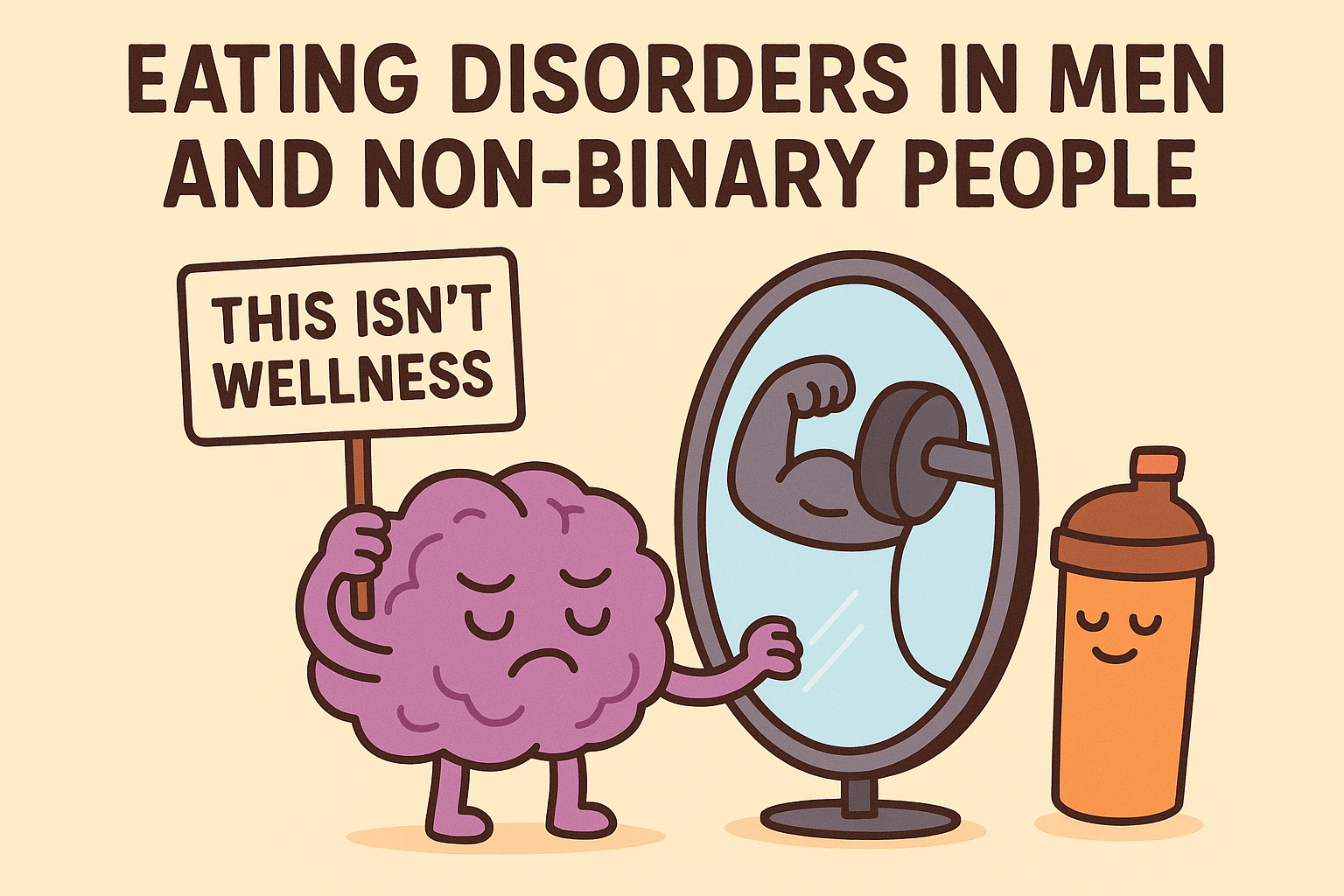Body image in Men and Non-Binary People: It’s Not Just About Weight
When people picture eating disorders, the stereotype is usually a thin teenage girl who “just wants to lose weight.” 🙄 But let’s get real: eating disorders affect men and non-binary people too. And often, the focus isn’t on shrinking the body, but on sculpting it.
Weight vs Appearance: Different Flavours, Same Struggle
For many men and non-binary folks, the issue isn’t about “being smaller,” it’s about being leaner, more muscular, or perfectly shaped. Think endless protein shakes, two-a-day gym sessions, or panic when a rest day ruins the workout streak. Society loves to cheer this on (“Wow, so disciplined!”), but underneath? It’s the same obsessive, exhausting cycle that makes eating disorders so serious.
The Stats Don’t Lie
Eating disorders are not rare in men and non-binary people. In fact, studies suggest that around one in four people with an eating disorder are male. And research is increasingly showing higher rates among non-binary people compared to cisgender groups, largely due to the added pressures of body image, gender dysphoria, and societal expectations.
Read more: Our boys and men are not all right: addressing poor male body image
Where the DSM Gets It Wrong
The DSM (that big diagnostic manual psychologists and psychiatrists use) has historically described eating disorders in a way that fits only one story: thin, white, cisgender women chasing weight loss. It doesn’t reflect the reality for people whose struggles show up differently. Such as those with muscle dysmorphia, supplement obsession, or “clean eating” taken to extremes. So what happens? Men and non-binary people get overlooked, underdiagnosed, or told they’re just “really into fitness.” (Spoiler: if your mental health is tanking, it’s not just a hobby).
Why This Matters
When the system doesn’t recognise you, it’s easy to feel like your struggle isn’t “valid” enough. But let me be clear: eating disorders are not about body size. They are about distress, shame, and feeling out of control. And those experiences don’t care what gender you are. or what body size, shape or colour you live in.
The Bottom Line
Eating disorders in men and non-binary people are real, serious, and absolutely deserving of care. If your brain feels more like a calorie counter than an actual brain, or if your self-worth depends on the shape of your body, please know, you’re not alone, and help exists.
We work with people of all genders, body sizes, shapes, and abilities, offering telehealth eating disorder psychology across Australia. No body stereotypes, no judgment, just support for you. where it feels most comfortable.
Note: The information provided in this blog is for educational purposes only and is NOT intended as medical /psychological advice. Please consult a healthcare professional for personalised guidance.
